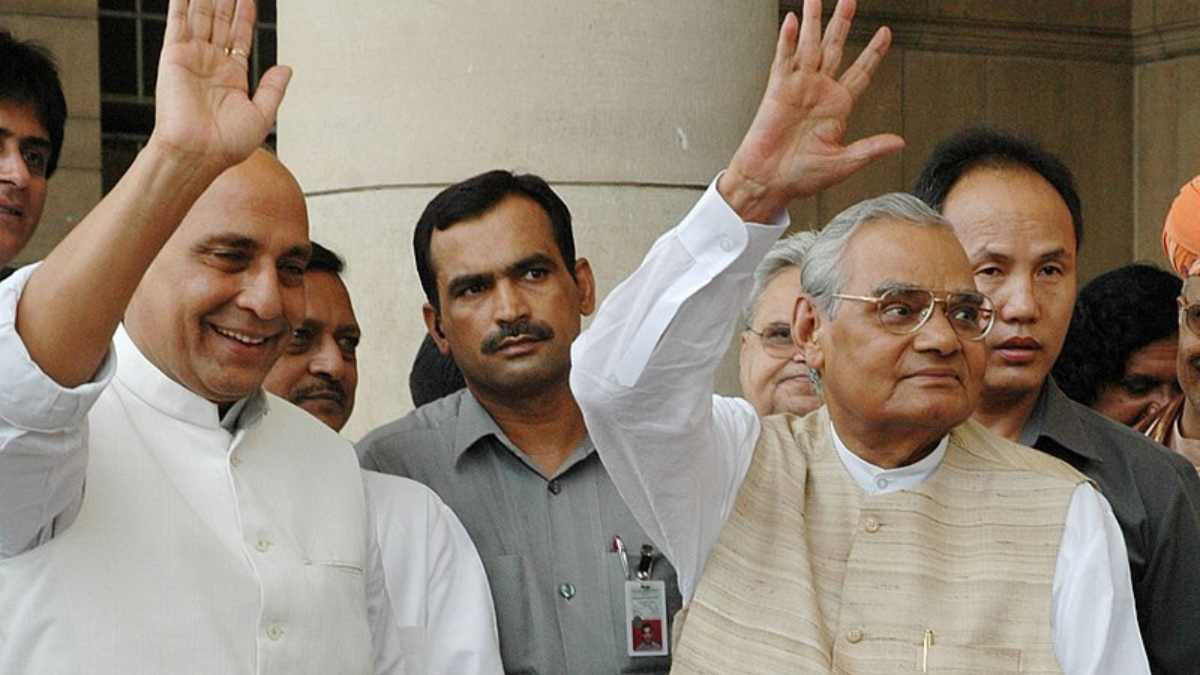Atal Bihari Vajpayee, the former Prime Minister of India, was a visionary statesman and an inspiring orator. He was a stalwart of Indian politics and made significant contributions to India’s development and progress during his tenure. This article delves into the life and legacy of Atal Bihari Vajpayee, highlighting his accomplishments, principles, and the impact he had on India’s political and social landscape.
Early Life and Education
Atal Bihari Vajpayee was born on December 25, 1924, in Gwalior, Madhya Pradesh, India. His father was a schoolteacher, and his mother was a homemaker. He completed his education in Gwalior and earned his graduation degree from Victoria College in Gwalior. He later pursued a post-graduation degree in Political Science from DAV College in Kanpur.
Entry into Politics
Atal Bihari Vajpayee’s political journey began during the Indian Independence movement when he actively participated in various agitations. He was deeply influenced by the ideology of the Rashtriya Swayamsevak Sangh (RSS), a nationalist organization, and became a member in his youth. Later, he became associated with the Bharatiya Jana Sangh, which was the political arm of the RSS.
The Jan Sangh and BJP Years
Atal Bihari Vajpayee played a crucial role in shaping the Jan Sangh, which was founded in 1951. He was one of the key leaders who worked tirelessly to strengthen the party’s roots across the country. In 1977, Jan Sangh merged with other opposition parties to form the Janata Party, and Vajpayee became the External Affairs Minister in the newly formed government.
After the fall of the Janata Party government, Atal Bihari Vajpayee formed the Bharatiya Janata Party (BJP) in 1980. He served as the party’s president from 1980 to 1986 and again from 1993 to 2000.
The Prime Ministerial Tenure
Atal Bihari Vajpayee became the Prime Minister of India three times, first for 13 days in 1996, then for 13 months from 1998 to 1999, and finally from 1999 to 2004. His tenure was marked by several significant achievements and reforms.
Economic Reforms
During his tenure, Atal Bihari Vajpayee introduced several economic reforms that transformed India’s economic landscape. Some of the key reforms included the privatization of public sector enterprises, the reduction in taxes, and the introduction of the New Pension Scheme. His government also launched the Sarva Shiksha Abhiyan, a scheme aimed at providing free education to all children.
Infrastructure Development
Atal Bihari Vajpayee’s government gave significant impetus to infrastructure development, especially in the road and telecom sectors. His government launched the National Highways Development Project and the Golden Quadrilateral Project, which aimed to connect the four corners of the country through a network of highways. Under his leadership, India witnessed a massive expansion in the telecom sector, with the launch of mobile and internet services.
Foreign Policy Achievements
Atal Bihari Vajpayee’s foreign policy was marked by his emphasis on “peace with honor.” He made significant efforts to improve India’s relations with its neighbors, including Pakistan, China, and Bangladesh. He also initiated the Delhi-Lahore Bus Service, which was a historic step towards peace between India and Pakistan.
Kargil War and Nuclear Tests
During his tenure, India faced several challenges, including the Kargil War with Pakistan and the nuclear tests conducted by India in 1998. Atal Bihari Vajpayee showed great leadership during these critical times and demonstrated India’s resolve to defend its sovereignty and security.
Retirement and Legacy
After his retirement from politics, Atal Bihari Vajpayee remained an important figure in Indian politics and continued to inspire millions of people with his speeches and writings. His legacy includes his contributions to India’s economic and social development, his statesmanship, and his commitment to secularism and democracy.
Personal Life and Personality
Atal Bihari Vajpayee was known for his simple and unassuming nature, his sense of humor, and his ability to connect with people from all walks of life. He was also an accomplished poet and writer and published several books of poetry and essays.
Quotes and Speeches
Atal Bihari Vajpayee was a gifted orator and delivered several memorable speeches during his tenure. Some of his famous quotes include “Good governance is good politics,” “We believe in consensus politics,” and “You can change friends but not neighbors.”
Awards and Recognition
Atal Bihari Vajpayee was honored with several awards during his lifetime, including the Padma Vibhushan, India’s second-highest civilian award, and the Bharat Ratna, India’s highest civilian award. He was also conferred with several international honors, including the Order of Abdulaziz Al Saud, Saudi Arabia’s highest civilian award.
Conclusion
Atal Bihari Vajpayee was a visionary statesman and a true leader who dedicated his life to the service of his country. He will always be remembered for his contributions to India’s development, his principles of secularism and democracy, and his ability to inspire people with his words and actions.




